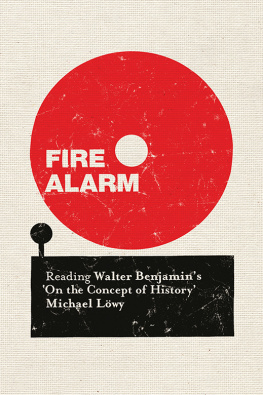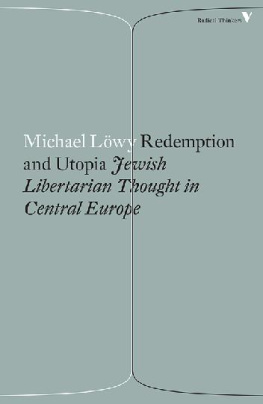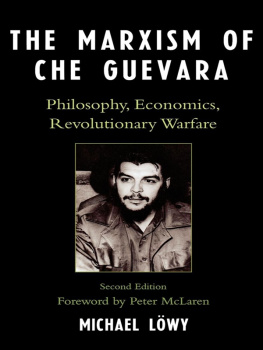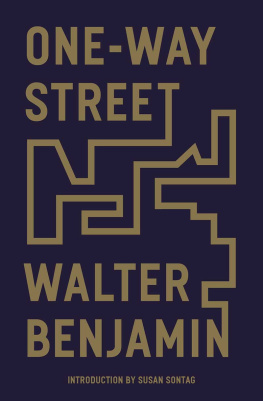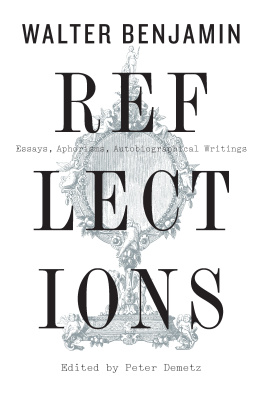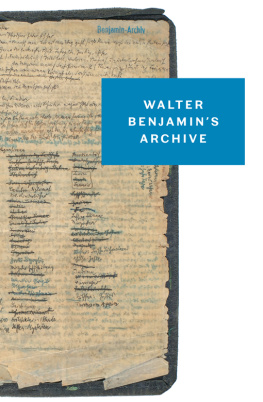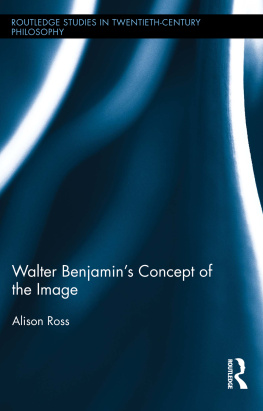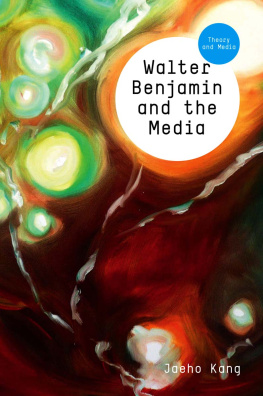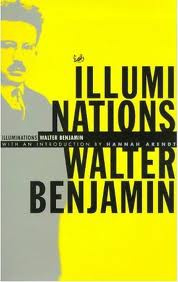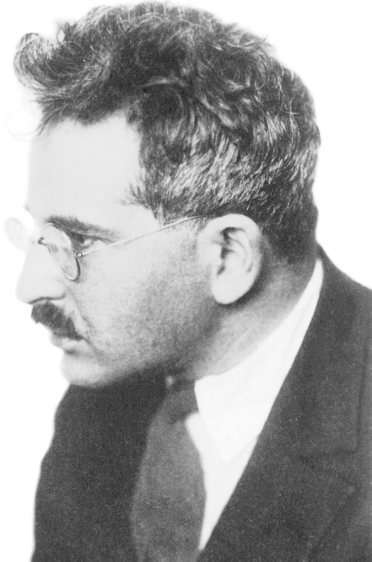Romanticism, Messianism and Marxism
in Walter Benjamins Philosophy of History
Walter Benjamin is an author unlike any other. His fragmentary, unfinished, at times hermetic, often anachronistic and yet, nonetheless, always contemporary work, occupies a singular, even unique, place in the intellectual and political panorama of the twentieth century.
Was he primarily, as Hannah Arendt claimed, a literary critic, an homme de lettres, not a philosopher?
Benjamins readers, particularly in France, have been concerned mainly with the aesthetic side of his work, and have inclined towards regarding him, first and foremost, as a historian of culture. Now, without neglecting that aspect of his work, we must acknowledge the far wider scope of his thought, which aims to achieve no less than a new understanding of human history. His writings on art and literature can be understood only in relation to this overall vision that illuminates them from within. His thinking forms a whole, in which art, history, culture, politics, literature and theology are inseparable.
We usually classify the various philosophies of history by their progressive or conservative, revolutionary or nostalgic character. Walter Benjamin does not fit into these classifications. He is a revolutionary critic of the philosophy of progress, a Marxist opponent of progressivism, a nostalgic who dreams of the future, a Romantic advocate of materialism. He is, in every sense of the word, unclassifiable. Adorno rightly defined him as a thinker standing apart from all tendencies. And his work presents itself, in fact, as a kind of erratic block in the margins of the main schools of contemporary philosophy.
It is futile, then, to attempt to recruit him into one or other of the two main camps contending for hegemony on the stage (or should we say the market?) of ideas: modernism and postmodernism.
Jrgen Habermas seems to hesitate: after condemning Benjamins anti-evolutionism in his article of 1966 as contrary to historical materialism, he asserts in his The Philosophical Discourse of Modernity that Benjamins polemic against the socio-evolutionary levelling off of historical materialism is directed against the degeneration of modernitys consciousness of time and aims, therefore, at renew[ing] that consciousness. But he does not succeed in integrating into his philosophical discourse of modernity the central Benjaminian concepts, such as the now-time that authentic instant that interrupts the continuum of history which seems to him to be manifestly inspired by a mixture of Surrealist experiences and motifs from Jewish mysticism.
It would be an equally impossible task to transform Benjamin into a postmodernist avant la lettre. His de-legitimation of the grand narrative of Western modernity, his deconstruction of the discourse of progress and his plea for historical discontinuity are immeasurably far removed from the postmodernists detached gaze on current society, which is presented as a world where grand narratives have finally been consigned to the past and replaced by flexible, agonistic language games.
Benjamins conception of history is not postmodern, firstly because, far from being beyond all narratives supposing that such a thing were possible it constitutes a heterodox form of the narrative of emancipation: taking its inspiration from Marxist and messianic sources, it uses nostalgia for the past as a revolutionary method for the critique of the present. His thought is, therefore, neither modern (in Habermass sense) nor postmodern (as Lyotard understands the term), but consists rather in a modern critique of (capitalist/industrial) modernity, inspired by pre-capitalist cultural and historical references.
Among the attempts at interpreting his work, there is one that seems to me particularly questionable: the approach that believes he can be placed in the same philosophical camp as Martin Heidegger. In her touching essay of the 1960s, Hannah Arendt unfortunately contributed to this confusion, asserting, against all the evidence, that Without realizing it, Benjamin actually had more in common with [Heidegger] than he did with the dialectical subtleties of his Marxist friends.
One may, admittedly, compare the two authors conceptions of historical time to identify points of affinity: the theme of eschatology, the Heideggerian conception of authentic temporality, and the openness of the past. If one takes the view, as Lucien Goldmann does, that Lukcss History and Class Consciousness was one of the hidden sources of Being and Time, one might suppose that Benjamin and Heidegger both drew inspiration from the same work. However, starting out from a set of common questions, the two thinkers diverge radically. It seems clear to me that Benjamin was not a follower of Heidegger, not simply because he denies it categorically, but for the good reason that his critical conception of temporality was already defined, to all intents and purposes, during the years 191525, long before the publication of Sein und Zeit in 1927.
Walter Benjamins Theses On the Concept of History (1940) constitutes one of the most important philosophical and political texts of the twentieth century. In revolutionary thought, it is perhaps the most significant document since Marxs Theses on Feuerbach. It is an enigmatic, allusive, even sybilline text, its hermeticism studded with images, allegories and illuminations, strewn with strange paradoxes and shot through with dazzling insights.
If we are to be able to interpret this document, it is, I believe, indispensable to situate it within the development of Benjamins work. Let us attempt to identify, in the movement of his thought, the moments that prepare or prefigure the text of 1940.
Benjamins philosophy of history draws on three very different sources: German Romanticism, Jewish messianism and Marxism. And we are not looking at a combinatorial or an eclectic synthesis of these three (apparently) incompatible perspectives, but at the invention of a new and profoundly original conception on the basis of all of them. His approach cannot be explained by some particular influence: the different schools of thought, the various authors he cites and his friends writings are so many materials from which he builds a construction of his own, elements with which he effects an alchemical fusion to produce philosophers gold.

